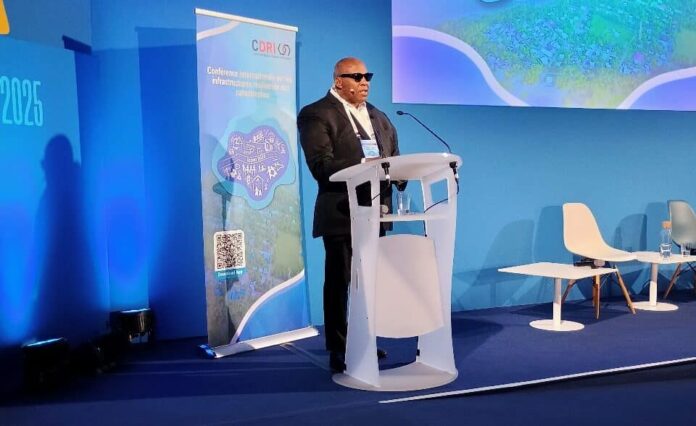Antigua and Barbuda remains at the forefront of a global effort to devise strategic solutions to address the crucial issue of disaster risk reduction for small island developing states.
The country’s high-level participation at two recent meetings on this crucial matter were led by Prime Minister the Hon. Gaston Browne and Antigua and Barbuda’s Permanent Representative to the United Nations, Ambassador Walton Webson, both of whom proposed a bold set of solutions geared at accelerating firm action on building climate resilience and improving disaster risk reduction.
Ambassador Webson was in attendance at the eighth session of the Global Platform Disaster Risk Reduction (DRR) in Switzerland where he shared thoughtful insights with a panel of experts and officials at a Special Event on Disaster Risk Reduction in SIDS. It was held under the theme Unlocking the support to advance implementation of the Antigua and Barbuda Agenda for SIDS (ABAS). The event was convened to explore strategies for enhancing economic resilience, water, food and energy security and environmental protection. Additionally, calls were made for increased financing and collaboration with the private sector and civil society in support of SIDS.
With disaster risk reduction being a major priority of the ABAS, Ambassador Webson proposed a comprehensive five-point resilience strategy for Small Island Developing States that includes the establishment of the SIDS Centre of Excellence.
He expressed support for investments in climate-smart infrastructure powered by AI-driven early warning systems and real-time hazard mapping to enable anticipatory action rather than reactive responses to natural disasters.
Ambassador Webson further highlighted nature-based solutions like mangrove restoration and coral reef regeneration as another key component, combining both traditional knowledge with modern science.
Meantime, both Prime Minister Browne and Ambassador Webson made presentations at the inaugural session of the International Conference on Disaster Resilient Infrastructure (ICDRI), which was held in Nice, France, on June 7.
The conference brought together governments, public and private sector stakeholders, multilateral development banks and financial institutions in a solution driven effort to harmonize infrastructure development priorities.
In a recorded address, Prime Minister Browne underscored the urgent and crucial nature of investments in resilient infrastructure for SIDS. He stated these investment are critical as they safeguard lives, preserve livelihoods and protect development gains.
“Yet, for SIDS, the cost of building and maintaining climate-resilient infrastructure is often prohibitive. A single storm can set us back years. We need not just stronger seawalls, ports, and roads but smarter systems—designed with nature, integrated with communities, and adaptable to a changing climate,” Prime Minister Browne offered.
The prime minister reinforced his thoughts on this crucial issue with an outline of the progress that island nations continue to make after adoption of the Antigua and Barbuda Agenda for SIDS (ABAS), the 10 year framework document of last year’s SIDS4 Conference.
“We are now working with the United Nations system and key development agencies to align ABAS priorities with SDG acceleration strategies and climate finance mechanisms. But we cannot do this alone. Implementation requires a whole-of-society approach and sustained international engagement,” Prime Minister Browne stressed.
Accompanying Ambassador Webson to both meetings was First Secretary at the Antigua and Barbuda Mission to the United Nations Claxton Duberry.


